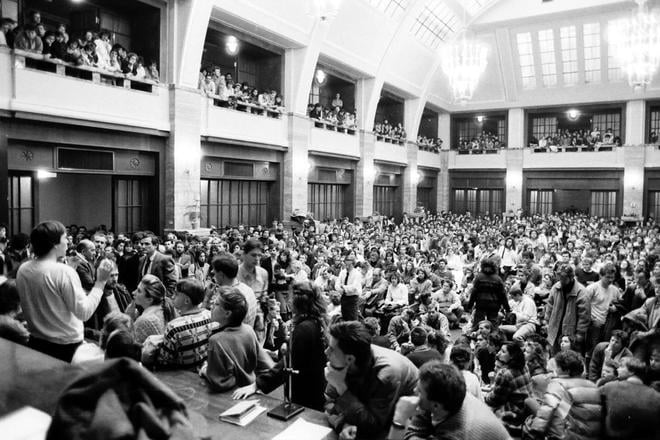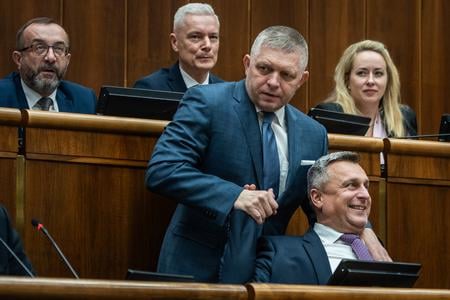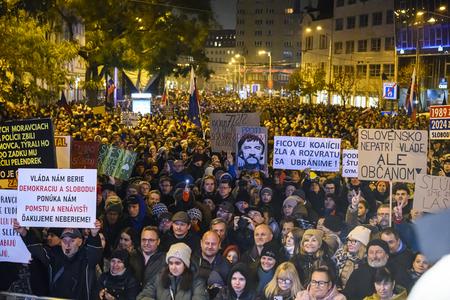Slovakia is set to scrap a national holiday marking the fall of communism, after parliament approved a government plan to make 17 November a normal working day.
Known as the Day of the Struggle for Freedom and Democracy, the date commemorates mass protests in 1989 that helped end communist rule in what was then Czechoslovakia. For the past 14 years it has been both a public holiday and a day off, marked by events celebrating the country’s democratic transition.
The government of Robert Fico, leader of the populist left-wing Smer party, says removing the holiday is part of a wider fiscal consolidation plan aimed at boosting productivity.
The proposal was approved by parliament and now awaits the signature of the president, Peter Pellegrini. Although the day will keep its official status as a memorial date, Slovaks will no longer have time off work.
Schools forced to adjust
The change has caused practical problems for schools. Around 700,000 pupils and 91,000 teachers in primary and secondary education had planned their academic calendars assuming 17 November would remain a holiday.
The daily newspaper SME contacted several schools to ask how they plan to adapt.
“Neither we nor the parents agree with the decision to change such a fundamental day,” said Gabriel Kalna, head of a primary school in the Ružinov district of the capital, Bratislava. “The question now is whether we will dedicate the day to special activities or hold shorter classes and discussions.”
Under current rules, school directors may grant up to five days off each year for organisational or operational reasons. Any additional days must be approved by the education ministry, and only in exceptional cases.
According to Erika Fabiánová, head of a primary school in the eastern town of Rožňava, most schools have already used those days for teacher training, national testing or emergencies such as water outages. Many are now looking for other ways to mark 17 November within the limits of normal classes.
Universities keep the date
Universities are not bound by the same regulations. Several major institutions, including Comenius University, the University of Economics and Business and the Slovak University of Technology in Bratislava, as well as the University of Ss Cyril and Methodius in Trnava and two universities in Košice, have announced that students will still have the day off.
“November 17 is the day when, in 1939, the Nazis closed Czech universities, executed nine students and sent more than a thousand others to concentration camps. It is also the day that led to the end of the totalitarian regime in 1989,” said Marek Števček, rector of Comenius University, earlier this year.
Political symbolism
The move carries strong symbolic weight. Fico, a former member of the Communist Party of Czechoslovakia, has previously downplayed the significance of the 1989 events. “Looking back, I don’t see any fundamental turning point in my life in 1989,” he said in a 2000 interview with Domino Fórum magazine.




